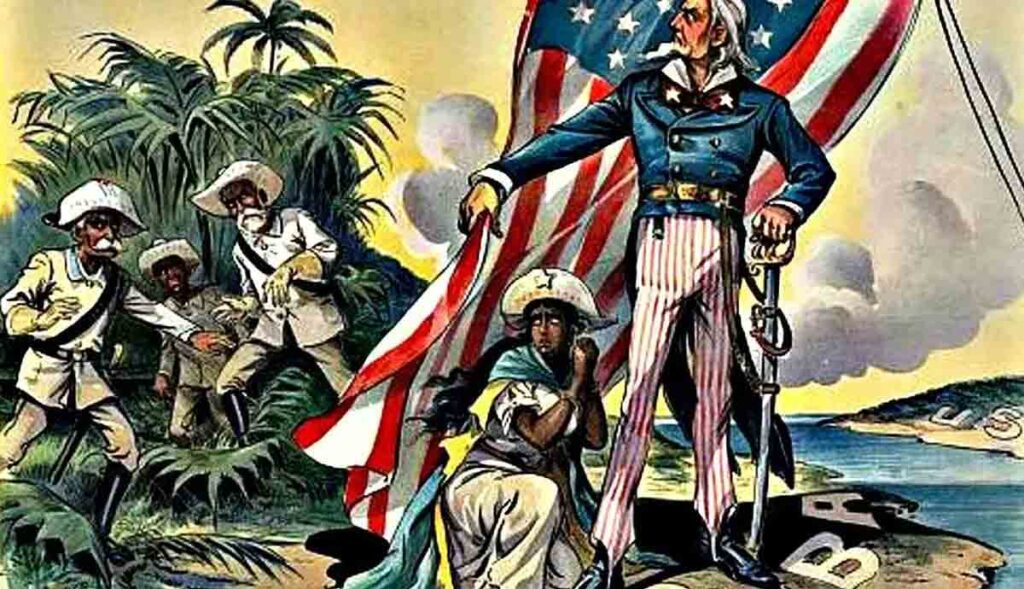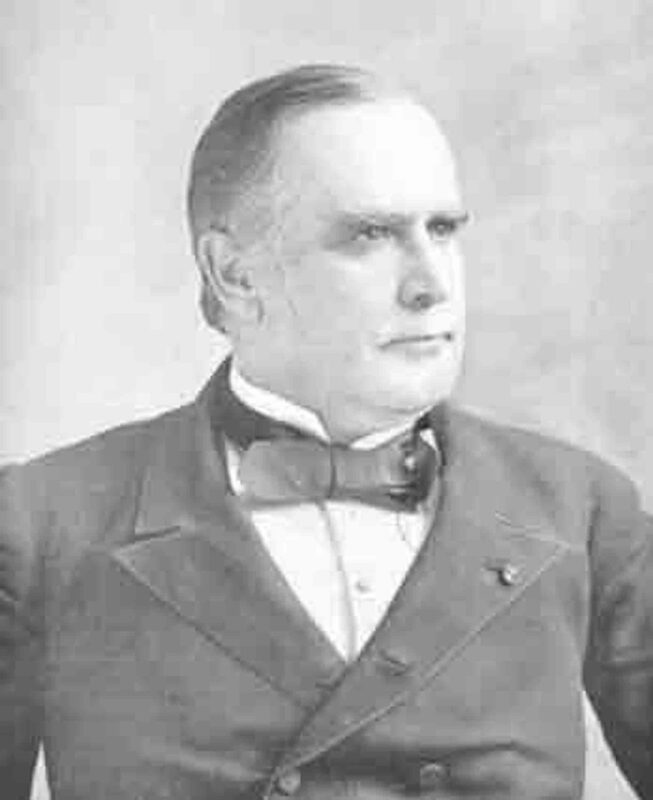Start of Spanish-American War on April 20, 1898 boded ill for PH

American cartoon depicting U.S. as a savior of Cuban rebels against Spanish colonialism.
There were 66 very tense days between the sinking of the U.S.S Maine in Havana Harbor on February 16, 1898, and the commencement of the American blockade of Havana on April 22, 1898. Both Spain and the United States had lengthy and intense diplomatic efforts to solve their problems, but the outcome was inevitable.
Spain had unrealistically expected to retain Cuba, and the United States had decided to accept nothing less than complete Cuban independence. Since both parties were unwilling to compromise, the Spanish-American War was inevitable.
When reviewing the significant American and Spanish deliberations, correspondences, and documents of the sixty-six-day period, there was no mention of the Philippines. While the Spanish-American War and its tragic aftermath would have such a profound impact on the Philippines, the islands were completely neglected during these back-and-forth negotiations before the war broke out.

President William McKinley
A couple days after the declaration of war, the Governor-General of the Philippines, Basilio Augustin y Davila, issued a proclamation for the Filipinos. Ironically, he addressed the Filipinos as “Spaniards.” Filipinos had been trying for decades to obtain civil rights as Spaniards, but to no avail. Now the Governor General desperately needed their support. Considering all the recent unrest in the Philippines, the Augustin y Davila evidently developed amnesia regarding the Revolution of 1896 and the fact that Emilio Aguinaldo and his lieutenants were exiled in Hong Kong.
The Spanish proclamation to the Filipinos continued with its propaganda. It said that the Americans would forcefully convert Catholic Filipinos to Protestantism. The Americans would also expropriate the property rights of the Filipinos and force them into hard labor. The proclamation even alleged that the supposedly barbaric Americans would desecrate the graves of their ancestors. Finally, the Governor-General implied that their wives and daughters would be subject to American lust which would stain their honor. The document concluded that the “Filipinos prepare for the struggle…”
On April 11, 1898, President William McKinley of the United States submitted a message to the U.S. Congress. The message detailed the suffering of the Cuban people and the inhumane treatment by the Spanish. He concluded that the future of the Cubans was in the hands of Congress since that august body had the sole power to declare war. President McKinley said that “…I await your action.” Once again, the Philippines was not mentioned in this presidential message, although the American Asiatic Fleet had been on alert and ordered to Hong Kong since February 25, 1898.
The United States Senate began intense debates on April 16, 1898. One of the first amendments to the Declaration of War legislation was the recognition of a newly formed Cuban Republic. After that amendment, a very substantial amendment followed called the Teller Amendment. It was named after Senator Henry Teller of Colorado. This amendment stated that the United States will not exercise sovereignty, jurisdiction, and control over Cuba. The amendment stated that “…to leave the government and control of the island to its people.”
The Teller amendment was truly revolutionary. At the turn of the 20th Century, imperial powers always intended to control their colonial governments and its people. If the Teller Amendment had been written more broadly to cover other Spanish possessions like the Philippines, then the Philippine-American War might have been avoided. Unfortunately, the focus was only on Cuba. Most American senators were ignorant of Spanish misrule in the Philippines.
On April 19, 1898, the U.S. House of Representatives and the Senate reached an agreement after more than a week’s debate. The Joint Resolution of Congress was finally passed at 3 a.m. In addition to Cuban Independence, the Joint Resolution gave President McKinley the authority to use land and naval forces “to carry” out the resolution. The Joint Resolution did not remark on the Philippines, but the language was broad enough to include and cover the use of American land and naval forces in the Philippines.
The following day, April 20, 1898, President McKinley signed the Joint Resolution at the White House. America was now at war. Whether it was prepared and ready for war was subject to debate. The United States naval forces proved to be better prepared than the army.
A blockade of Havana Harbor by the Navy commenced quickly on April 22, 1898. In the distant Spanish possessions in the Pacific, Commodore Dewey and his Asiatic Fleet were heading shortly to Manila Bay to counter the Spanish navy in the Philippines.
Dennis Edward Flake is the author of three books on Philippine-American history. He is Public Historian and a former park ranger in interpretation for the National Park Service at the Eisenhower National Historic Site in Gettysburg, PA. He can be contacted at: flakedennis@gmail.com

